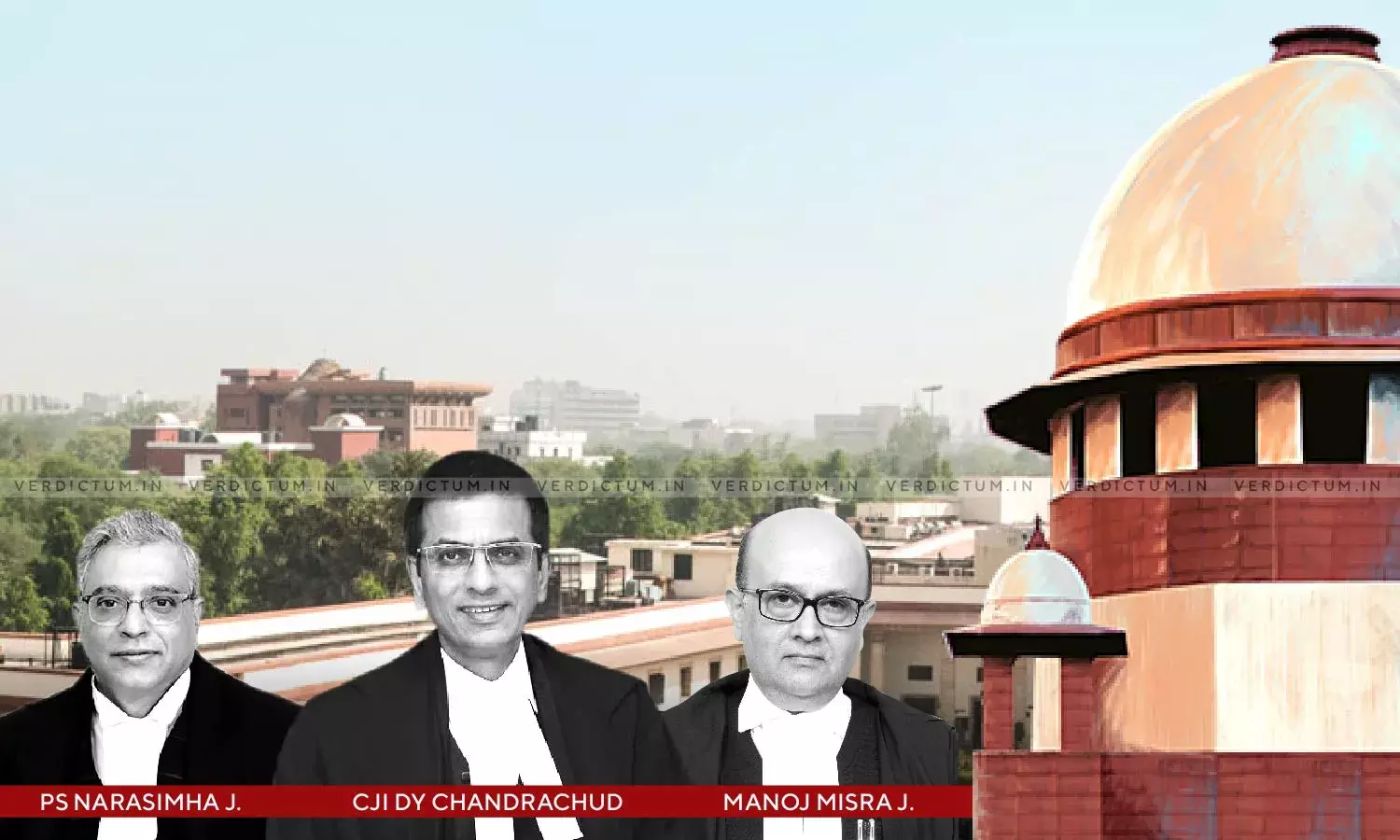Supreme Court Dismisses Plea Challenging BCI's Decision To Extend Term Of Bar Council Of States Beyond 5 Years

The Supreme Court, recently, refused to entertain an Interlocutory Application in a petition, seeking a mandamus directing the Bar Council of India to not to extend the terms of the Bar Council of States beyond the period of five years. In the matter, the bench noted the fact that an action has already been taken for the extension.
However, the Court held that the person or the party aggrieved is at liberty to pursue the appropriate remedies in accordance with law to challenge the action.
In the instant matter, as per the judgment dated April 10, 2023, a High-Powered Committee was formed, chaired by Justice Deepak Gupta, Former Judge of the Supreme Court that also included two judges of the High Courts, two senior advocates, and three members of the BCI to monitor the process of verification of both the educational degree certificates and the certificates of enrolment of the advocates. The bench then noted that the Committee is in the process of carrying out its task.
However, the bench led by Chief Justice of India D.Y. Chandrachud on the request of Senior Advocate S Prabhakaran, appearing on behalf of the Bar Council of India, the bench listed the writ petitions and the transferred cases on December 15, 2023. The bench also comprised Justice P.S. Narasimha and Justice Manoj Misra.
In the pertinent matter, the petitioner, who is a practicing advocate, had sought two distinct reliefs, one where it challenged an office order dated November 1, 2022 of the Bar Council of India to all the State Bar Councils, that allegedly interdicted the process of verification of advocates who are enrolled with the State Bar Councils for scrutinizing the genuineness of their degrees and enrolments.
While the other issue was the method of co-opting members of the State Bar Councils to fill up casual vacancies.
In 2015, the Bar Council of India notified the Bar Council of India Certificate and Place of Practice (Verification) Rules 2015. The process of verification of the certificates and place of practice commenced with efforts by the State Bar Councils and the Bar Council of India.
In the judgment, the Court had observed, “The due verification of advocates who are enrolled with the State Bar Councils, is of utmost importance to preserve the integrity of the administration of justice. Persons who profess to be lawyers, but do not either have the educational qualifications or degree certificates on the basis of which they could have lawfully granted entry to the Bar, pose a grave danger to the administration of justice to citizens. Hence, it is the duty of every genuine advocate of the country to ensure that they cooperate with the Bar Council of India which is 4 seeking to ensure that the certificates of practice are duly verified, together with the underlying educational degree certificates. Unless this exercise is carried out periodically, there is a danger that the administration of justice would be under a serious cloud. The written submission which has been placed on the record by the Bar Council of India indicates that several such persons have been elected to State Bar Councils and some persons have thereafter occupied judicial office in the district judiciary as well”.
Accordingly, the Bench disposed of the IA.
Cause Title: Ajay Shankar Srivastava v. Bar Council Of India & Anr.
Click here to read/download the Order

